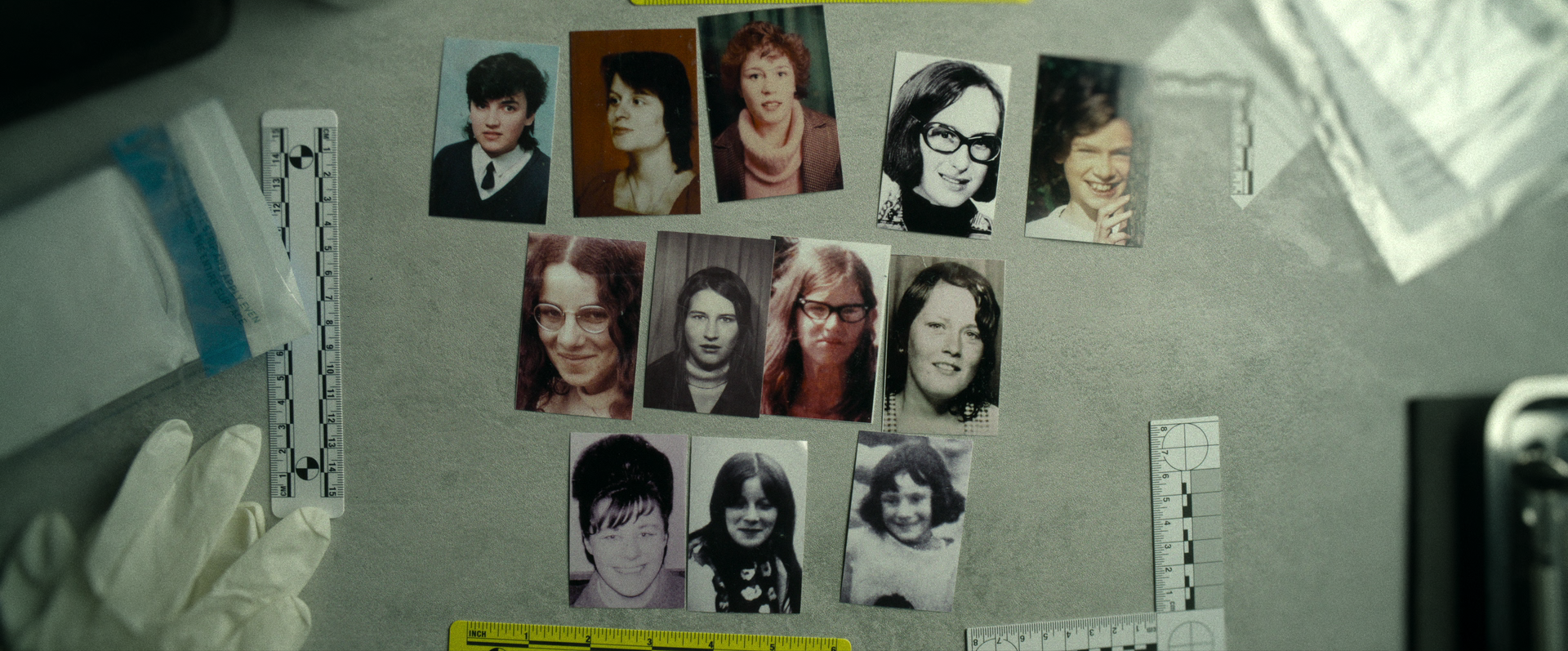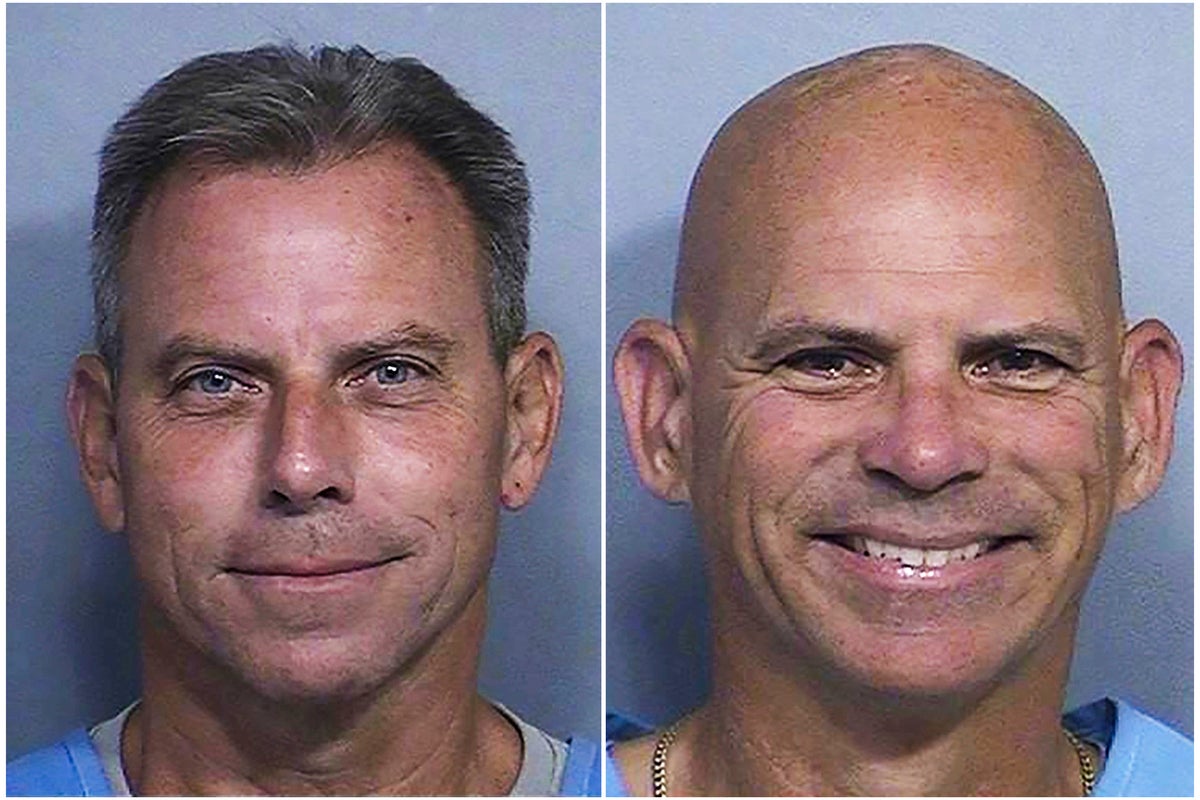ARTICLE AD BOX
How bleak. Though this “definitive” three-part Netflix series appears to be mostly a cheap-as-chips rehash of a 2001 documentary, (Channel 5’s Fred and Rose: The West Murders), it’s pretty much guaranteed to put bums on sofas. There’s just something about a psychopath. As the credits roll on Fred and Rose West: A British Horror Story, ads start blaring for the fifth season of serial killer series, You. Whether hateful or hot, fictional or real, homicidal maniacs have become the streaming giant’s lifeblood.
We’re meant to be thrilled by “recently discovered” police recordings of rapist, torturer and murderer Fred West, who was taken into custody in 1994. As West’s patio and house in Gloucester are dug up, nine bodies are found (including the body of Fred’s 16-year-old daughter, Heather). Clearly enchanted by all the attention, Fred tells the police how he used a bread knife to dismember his child. The man spews cliches and lies. When not sniggering (re his victims), he simpers (about wife and accomplice, Rose, and the couple’s many offspring). Yes, it’s grimly fascinating to hear him say he promised Rose he’d never “shop” her: “I swore on the kids’ lives!” Let that sink in. You couldn’t invent this dialogue, which laughs in the face of satire. But does it count as news? Not really.
These tapes (or ones containing very similar material) have been available to journalists and screenwriters for decades. They played an important part in the aforementioned Channel 5 doc, as well as Gordon Burn’s 1998 book Happy Like Murderers and the 2011 ITV drama, Appropriate Adult, starring Dominic West. Fred was obscenely wily and banal. Yeah, yeah, yeah, we’ve heard it all before. As for the footage of the police poking around 25 Cromwell Street, it’s exactly what you’d expect – mundane. Why go there?
Worse, even as this offering from Dan Dewsbury purports to tell “the full story”, it leaves out a crucial figure. Fred’s daughter, Anne Marie Davis, was never going to appear as a talking head (she criticised Fred and Rose: The West Murders for being titillating; she said of Appropriate Adult, “let’s not kid ourselves, the object of this drama is to make money”). You do, however, expect her name to be mentioned, because she’s central to the story.
It’s hard to do justice to the scale of the Wests’ crimes; apologies in advance for even trying. Between them, together and alone, it’s now thought the couple killed at least 12 women (some suspect the number is far higher). One of Fred’s first known victims was Anne Marie’s teenage nanny, Ann McFall. Fred also killed Anne Marie’s mother, Rena Costello, while it was Rose who bumped off Anne Marie’s eight-year-old half sister Charmaine. This was all before the move to Cromwell Street. Fred and Rose started raping Anne Marie when she was eight. They prostituted her when she was 13. Though you wouldn’t know it from watching this programme, Anne Marie’s testimony was crucial at Rose’s 1995 trial (Fred killed himself just before the trial began). According to a journalist at the time, Anne Marie’s statements, coupled with her “yearning” glances at Rose, “capsized everyone in court”. Then aged 31, she played a key role in putting her stepmother behind bars, before regularly visiting Rose in prison. Defiant but dutiful, there’s something Shakespearean about Anne Marie. To erase her from the narrative just makes no sense.
Elsewhere, dapper hack Howard Sounes (who’s been covering the Wests ever since the story broke and is credited as the programme’s “senior producer”) sits at a table with one full glass of red wine and a dozen or so empty glasses. At first, you wonder if the unused glasses are a metaphor (does our culture’s thirst for gore create an emptiness that cannot be filled? Discuss). Soon, an alternative theory presents itself. The filmmakers, pushed for time, just couldn’t be bothered to clear the table.

It’s a world away from Netflix’s last British Horror Story, a meticulous slice of cultural history about the Jimmy Savile scandal.
Nor does the new series bear comparison with impassioned 2014 documentary, Tales of the Grim Sleeper, in which director Nick Broomfield and his interviewees dissect the misogyny that allowed a seemingly affable Joe Schmoe to rape and kill sex workers, in South Central LA, over a period of 23 years.
Here, by contrast, talking heads prefer to ponder the “sordid” goings on between on-the-game Rose and her clients, with one decent copper expressing astonishment that such activity could take place “in the centre of Gloucester!” Gee. Isn’t it awful when bad things happen to good cities?
The few scenes worth watching involve the relatives of victims Lucy Partington and Alison Chambers. Where Marian (big sister of Lucy) has a beatific smile, Dezra (big sister of Alison) is all frostbitten frown. Where Marian is media savvy, Dezra, speaking to the press for the first time, looks as if she’s fighting the urge to scream. What the two have in common is an ardour that cuts through sentimentality or contrivance.
Fred gets testy when asked specifics about the human beings he killed (“I haven’t got a clue which is which!”). He knows Alison is the third body under the patio, but says “I can’t recall her name”. For him, the dead girls and women aren’t remotely as interesting as he and Rose, a perspective some true-crime fans and commissioners may share. Dezra and Marian bring Alison and Lucy into focus. I’m not recommending this lazy, misleading and cynical Netflix package. It’s just a simple fact: the big sisters do their loved ones proud.









 English (US) ·
English (US) ·